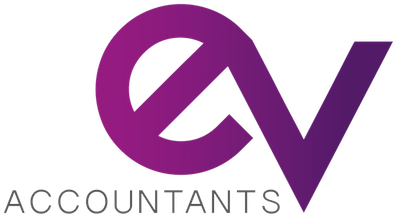VAT is a consumption tax levied on goods and services in the UK. Businesses with an annual turnover above £90,000 are required to register for VAT. However, some businesses with lower turnovers voluntarily register for VAT. But why? Well, while VAT comes with increased work and taxes, there are actually some benefits of being VAT-registered.
Pros of being VAT-registered
Improved cashflow
First, being registered for VAT can improve your business’s cashflow. When you register for VAT, you’re required to apply the tax to the goods and services you sell; you then pay it to HMRC in quarterly VAT returns. If you pass those costs onto your customers, this all means that more money is entering your business, helping you maintain a positive cashflow.
Reclaiming VAT on purchases
When you pay for business expenses from a VAT-registered supplier, it’s likely that you’re paying taxes on those purchases, putting up your costs. But if you’re registered for VAT, you can reclaim the VAT you pay on businesses and purchases and expenses.
Doing this can lead to significant cost savings, particularly for businesses that make substantial purchases of goods and services. By reclaiming VAT, businesses can reduce their overall expenses and improve profitability.
Enhanced business credibility
Being VAT-registered can enhance your business’s credibility and reputation. This is because customers and suppliers may perceive VAT registration as a sign that your business is well-established and financially sound. This perception can help attract more business opportunities and partnerships.
Cons of being VAT-registered
Administrative burden
Registering for VAT introduces additional administrative responsibilities. Businesses must maintain accurate records of all transactions, file regular VAT returns, and ensure compliance with VAT regulations. This increased paperwork can be time-consuming and may require investment in accounting software or professional services.
Increased prices for non-VAT registered customers
If your customer base primarily consists of individuals or non-VAT registered businesses, adding VAT to your prices can make your products or services more expensive for them. This price increase can at times reduce competitiveness and potentially lead to a decline in sales.
Complexity of compliance
VAT compliance is complex and subject to frequent changes. Keeping up with VAT rules, exemptions, and rates requires ongoing attention and expertise. Meanwhile, mistakes in VAT reporting or compliance can result in penalties and fines from HMRC, adding financial risk and administrative headaches. Even offsetting VAT from purchases can be complicated and time-consuming, often requiring meticulous record-keeping and a thorough understanding of applicable VAT laws.
Then again, this disadvantage of registering for VAT can be handled by working with a VAT specialist who will handle the heavy lifting for you.
Potential for HMRC audits
Being VAT-registered increases the likelihood of HMRC audits. While audits are routine, they can be stressful and time-consuming; businesses must be prepared to provide detailed records and justify their VAT calculations, which can disrupt regular operations.
In summary
Navigating the complexities of VAT registration can be challenging, and deciding whether it’s the right move for your business requires careful consideration of several factors. There are numerous advantages and disadvantages to registering for VAT, and what might be beneficial for one business could be a drawback for another. Factors such as the nature of your business, your annual turnover, the structure of your clientele, and the types of goods or services you provide all play critical roles in this decision.
On the plus side, VAT registration can enhance your business’s credibility, especially if your clients are other VAT-registered businesses. It allows you to reclaim VAT on business expenses, which can be a significant saving. However, being VAT-registered also means you must charge VAT on your goods or services, adhere to more stringent record-keeping requirements, and manage the complexities of VAT returns and payments, which can be time-consuming.
If you’re unsure whether VAT registration is the right step for your business, our team at EV Accountants is here to assist you. We offer personalised consultations to help you understand the implications of VAT registration based on your specific circumstances. Our experts will provide you with a detailed analysis, weighing the pros and cons, to ensure you make an informed decision that aligns with your business goals and operational needs.
Get in touch with us to discuss whether you would benefit from registering for VAT early.
